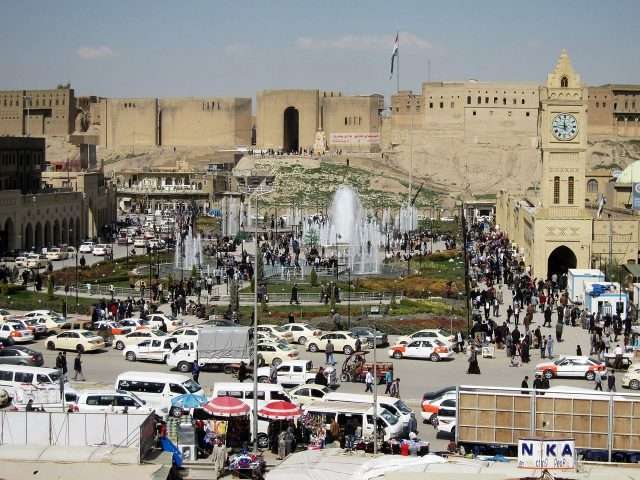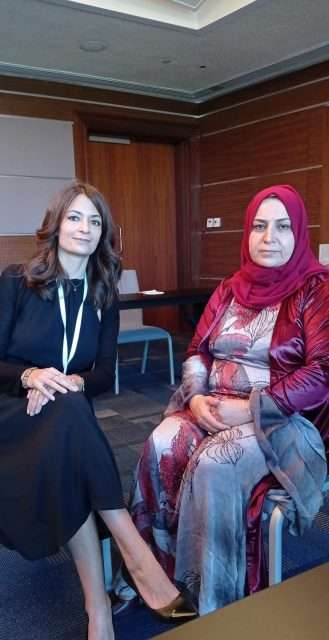Kurdistan politics and media: a conversation with Dr Nazakat Hussein

Geopolitical Report ISSN 2785-2598 Volume 20 Issue 8
Author: Silvia Boltuc
Kurdistan is experiencing severe internal complications due to the relationship with the central government in Baghdad and the recent Turkish military operation in the region in which Ankara planned to eliminate PKK members defined by Turkish authorities as “terrorists”.
In domestic politics, the Kurdistan Regional Government (KRG) have spent the last days discussing several disagreements with the Iraqi central government. On Tuesday, June 7th, 2022, the Iraqi Prime Minister Mustafa al-Kadhimi said that Baghdad has settled “90 per cent” of disagreements with Erbil, and only a few issues remain amid ongoing political disputes between the two governments.[1]
In 2007, the dispute between the parties arose after the Kurdistan Government passed a law on oil and natural gas that allowed the region to administer and develop its hydrocarbon resources. Last February 2022, the Federal Supreme Court of Iraq ruled this law “unconstitutional”, an episode seen by Erbil as a direct attack on the legal basis for the independence of the Kurdish energy sector.[2]
In foreign politics, Kurdistan has witnessed the Turkish military operation that Ankara started to target PKK members that Ankara considers terrorists. Previously, after meeting Turkish President Recep Tayyip Erdogan, Barzani welcomed expanding cooperation to promote security and stability in northern Iraq. Notably, the Kurdistan Regional Government has lucrative trade ties with Turkey and the problematic relations with the PKK group affected its economic interests.[3]
Media in Kurdistan and security
Turkish military activities in the area, terrorist attacks against civilian and military personnel, and regional criminal activities have hugely impacted the life and work of Kurdish journalists. At the end of May 2022, the Khani media agency reported that two rockets launched from Duhok’s Gali Zakho targeted its facilities without causing any casualties. The Kurdish media agency stated that the PKK was behind this attack.[4]
About the media situation and journalists’ security in Kurdistan, last week in Muscat, the capital of Oman, where the 31st World Congress of the International Federation of Journalists (IFJ) was held,[5] we met Nazakat Hussein, a member of the Kurdish Journalists’ Union and a newly elected member of the Governing Council for Gender Equality of the Middle East and the Arab World of the IFJ, to understand Kurdish internal dynamics. Nazakhat Hussein is originally from Halabja, a city in Kurdistan well-known for the 1988 chemical attack by the Iraqi military forces of Saddam Hussein’s regime, which caused the death of tens of thousands of civilians.

Commenting on the current situation between Erbil and Baghdad, Hussein stated that:
“There is a clash between the Iraqi Government in Baghdad and the Kurdish government in Erbil, and this is true, but it is possible to say that the situation is better in Kurdistan than in other areas of Iraq. If we look at the general political situation in Iraq, it is possible to say that the country is experiencing a better condition than before 2003, when the regime of Saddam Hussein was present. Specifically, if we talk about Kurdistan, even if we have problems to face, we can say that a lot has been done.“.
Speaking of the media in Kurdistan and, in general, of the work done by the IFJ, the Kurdish researcher reported that:
“My role in the International Federation of Journalists is to chair the committee for Gender Equality and, together with my Palestinian colleague elected right here in Muscat these days, our goal is to support journalism in the Middle East. We have carried out various activities to support the media and journalism in the region, and in recent times one of our objectives is to support women’s work. Currently, the situation of the Middle Eastern media is uneven. In some countries, the working conditions of journalists are better than other colleagues who always work in the Middle Eastern context. It must be emphasized that many media in Middle Eastern countries are linked to political parties, and therefore the information offered is ‘politicised’.
Furthermore, the problem of the safety of journalists in the Middle East is significant, which does not concern only women but the entire category. Culture and mentality are crucial aspects for women in journalism because many families do not support their daughters in having a career in the media and information world. In some cases, this lack of support results in a security problem. I come from Kurdistan, and I must say that the situation of Kurdish women who work in the media is better as there is more support in our culture and society than in other parts of Iraq, where many families do not support their daughters in having a career in the media and information world. In some cases, this lack of support results in a security problem.“.
Looking to the future of the Arab world and the Middle East, Hussein identified cooperation between the parties as the fundamental element to overcoming the various regional criticalities:
“In the Arab world, there are similarities between people and societies in different countries”, said Hussein, “And therefore, in my opinion, we will have to enter into greater cooperation to address contemporary and future challenges. Iraqis, Omanis, Syrians, Kurds, and others have similar traits that allow them to understand each other and look to the future together.“.
Sources
[1] Julian Bechocha (2022) PM Kadhimi says ’90 percent’ of disagreements with Kurdistan Region solved, Rudaw. Link: https://www.rudaw.net/english/middleeast/iraq/08062022.
[2] Haider Ibrahim (2022) Dispute over Iraqi Kurdistan’s energy resources ramps up, Al-Monitor. Link: https://www.al-monitor.com/originals/2022/05/dispute-over-iraqi-kurdistans-energy-resources-ramps.
[3] Silvia Boltuc (2022) Turkey started a military operation in northern Iraq in connection with gas pipelines, SpecialEurasia. Link: https://www.specialeurasia.com/2022/04/21/turkey-iraq-military-operation/.
[4] Chenar Chalak (2022) Rockets target media agency in Duhok, Rudaw. Link: https://www.rudaw.net/english/kurdistan/240520225.
[5] SpecialEurasia (2022) SpecialEurasia attends the 31st World Congress of the International Federation of Journalists in Oman. Link: https://www.specialeurasia.com/2022/05/31/specialeurasia-ifj-media-oman/.
Report in media partnership with Notizie Geopolitiche.
